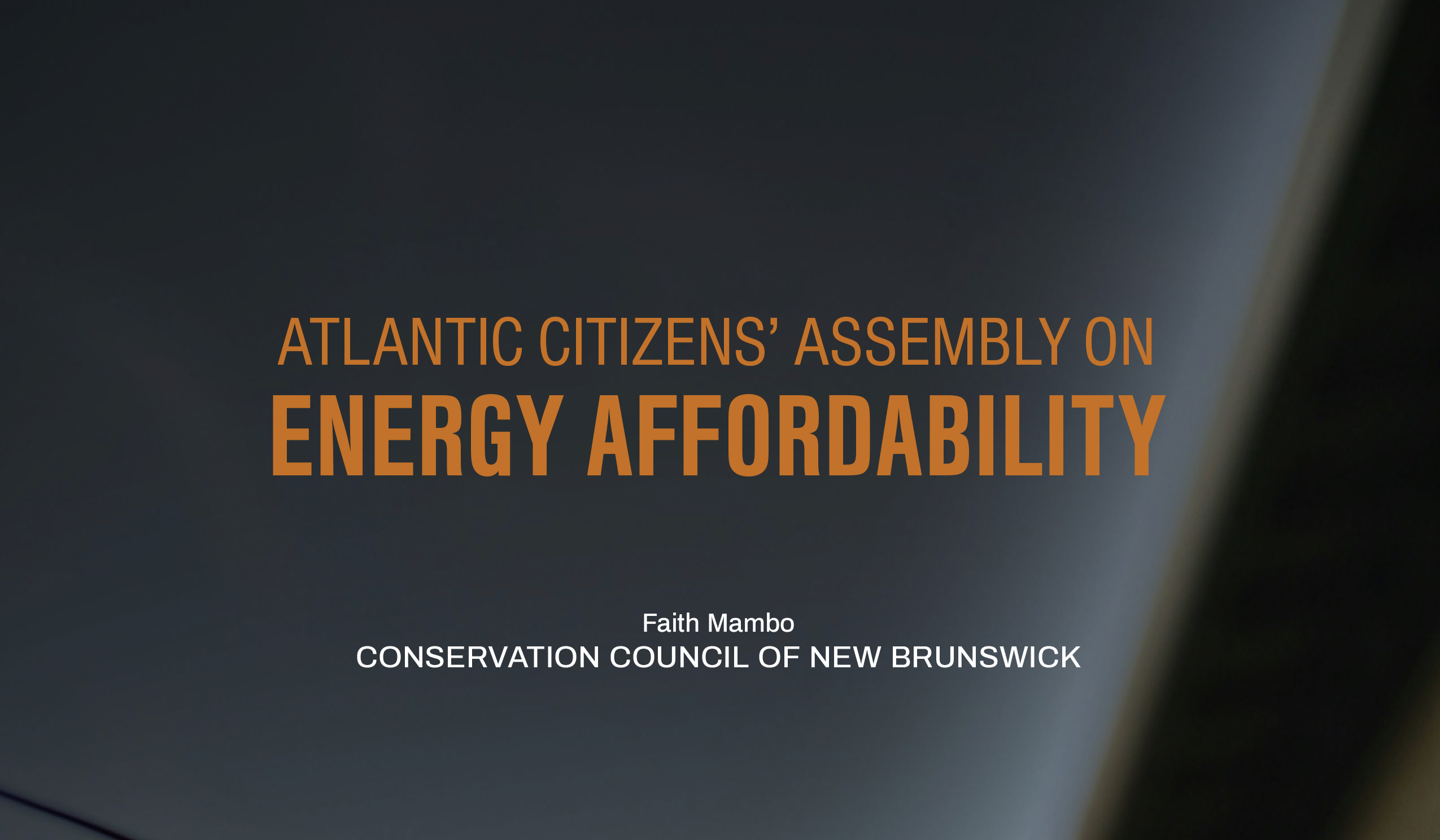Designing an engaging narrative
Engaging the public on climate change using a narrative that’s backed by research and science
featured narrative
Brief: Messaging energy affordability
Affordability is currently the top concern of many Canadians, according to various polls. Climate action advocates could benefit from emphasizing the positive link between affordability and clean energy, while negative associations between the two could hamper their efforts.
In this report, Dr. Louise Comeau, our director of climate change solutions, and Trevor Melanson, communications director at Clean Energy Canada, provide an energy security narrative informed by the latest research on Canadian attitudes towards electricity affordability.
Communications Surveys/Narratives
Available in English and French. Eighteen pages. This guide provides a brief look at the three key characteristics of successful community engagement: Meaningful, inclusive, and timely (MIT), followed by a checklist that energy companies can use to access their community engagement plan. The guide’s annex provides examples of how this checklist can be used to assess weaknesses in a project’s community engagement plan.
Brief: Messaging Energy Affordability (April 2023)
Available in English and French.Three slides. Affordability is currently the top concern of many Canadians, according to various polls. Climate action advocates could benefit from emphasizing the positive link between affordability and clean energy, while negative associations between the two could hamper their efforts. In this report, Dr. Louise Comeau, our director of climate change solutions, and Trevor Melanson, communications director at Clean Energy Canada, provide an energy security narrative informed by the latest research on Canadian attitudes towards electricity affordability.
National survey on clean electricity regulation
Available in English. 45 slides. This presentation provides an overview of the national survey commissioned by the Conservation Council looking at Canadians’ views on renewable energy, clean energy standards and more.
Available in English. Three pages. P.E.I. faces the same challenges as other jurisdictions: high capital costs, installing charging infrastructure, changing weather patterns, and bus driver acceptance. Despite these challenges, the province continues to break down barriers and forge ahead with its goal of becoming the first in Canada with a fully-electric school bus fleet.
A Zero-Emission Canadian Electricity System by 2035: David Suzuki study (August 2021)
Available in English. 47 pages. In this report, the David Suzuki Foundation reflects on how Canada can achieve a net-zero greenhouse gas emissions electricity system by 2035 and sustain it at net-zero as the total system doubles by 2050.
Available in English. 61 pages. This report expands on research conducted by East Coast Environmental Law in the summer and autumn of 2020 in which they undertook comparative analyses of the legislated electricity regimes in four eastern Canadian provinces and two New England states to assess how each regime addresses affordability, reliability, and sustainability concerns.
That research was conducted to inform advocacy efforts by the Conservation Council of New Brunswick and the Ecology Action Centre (“EAC”) in Nova Scotia, and, more specifically, to inform the organizations’ advocacy for progressive reform of the electricity regimes in their respective provinces.
Comparative Analysis of Long-Term Resource Plans and Energy Scenarios (Oct 2020)
Available in English. 29 pages. The Conservation Council of New Brunswick (CCNB) asked Energy Futures Group (EFG) to provide a comparative analysis on a selection of long-term resource plans and energy scenario studies to examine these questions. This report, and the accompanying data workbook, will support of work that CCNB is conducting in partnership with the Ecology Action Center (EAC).
Available in English. 74 pages. This report offers comparative overviews of six legislated electricity regimes in eastern Canada and the New England region. In doing so, it follows and builds on an earlier report entitled “A Comparative Analysis of the Legislated Electricity Regimes in New Brunswick and Nova Scotia”, which provided in-depth analyses of the legislated electricity regimes in New Brunswick
and Nova Scotia and the corresponding mandates of New Brunswick’s Energy and Utilities Board (the “EUB”) and Nova Scotia’s Utility and Review Board (the “UARB”).
A Comparative Analysis of the Legislated Electricity Regimes in New Brunswick and Nova Scotia
Available in English. 54 pages. This report examines the core aspects of the legislated electricity regimes in New Brunswick and Nova Scotia. Its primary purposes are to: provide comparative overviews of the legislated electricity regimes in New Brunswick and Nova Scotia, taking federal considerations into account as necessary; and, analyze the electricity mandates of New Brunswick’s Energy and Utilities Board (“EUB”) and Nova Scotia’s Utility and Review Board (“UARB”) and assess the approaches that each Board takes when interpreting its role as an electricity regulator.
Carbon narratives in New Brunswick
Available in English. 112 pages. Narratives that frame carbon pricing as a common-sense tool to make polluters pay their fair share of environmental damages while creating incentives that unleash innovation and creativity, are favoured by New Brunswickers, concludes a new study by our Climate Change and Energy Solutions Program Director, Dr. Louise Comeau in collaboration with UK-based Climate Outreach.
Carbon pricing is a priority of Canadian and provincial governments. That the Conservation Council believes this research looking at how framing carbon pricing in a different light can change the way we view the mechanism will be a useful tool for New Brunswickers.
Majority of Canadians support climate action: EcoAnalytics study
By the University of Montreal. 2016. Available in English upon request. A strong majority of Canadians support new regulations on energy efficiency, cleaner fuels and renewable energy, says a comprehensive new poll conducted by researchers at the University of Montreal. Key findings represent a sample of 1,200 Canadians that answered a 40-question survey conducted between Oct. 5th and Oct.18th.
Those findings include: 95 % of Canadians support building energy efficiency, 73% Canadians believe their governments should do more to limit climate change, 81% of Canadians support a coal phase-out, 71% of Canadians want more emphasis on wind, 85% of Canadians want more emphasis on solar, 87% of Canadians support renewable portfolio standards, and 72 % of Canadians show support for carbon pricing.



